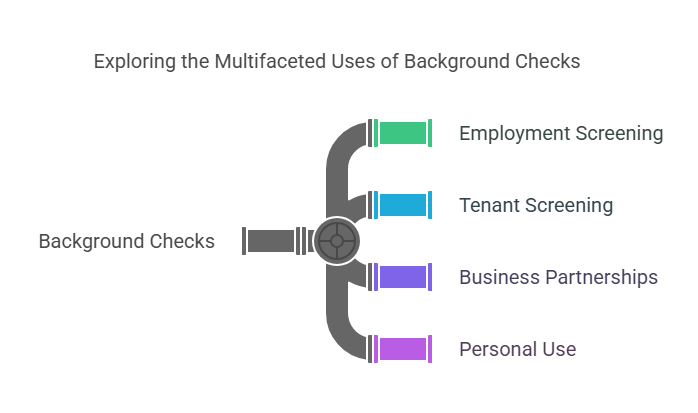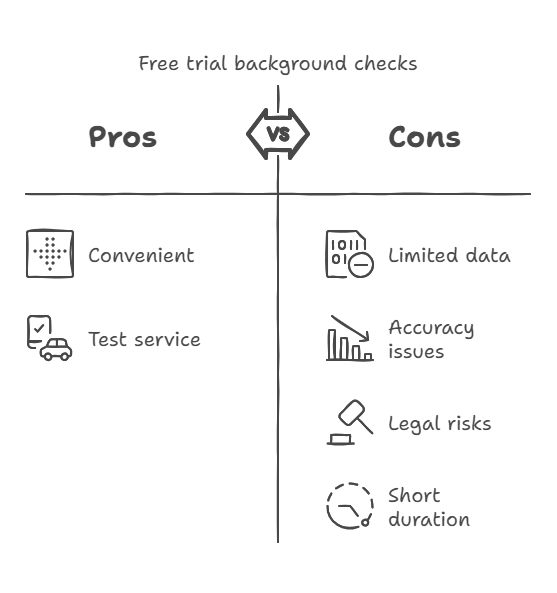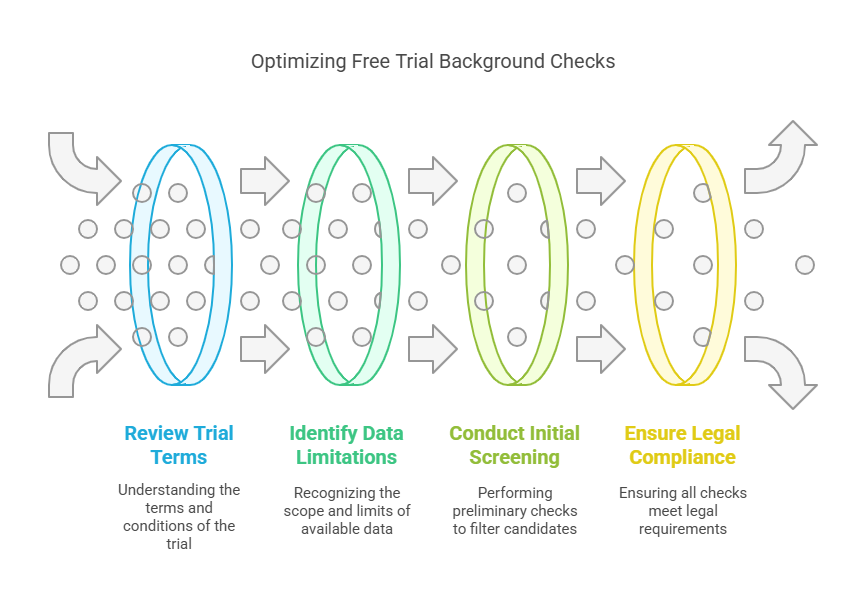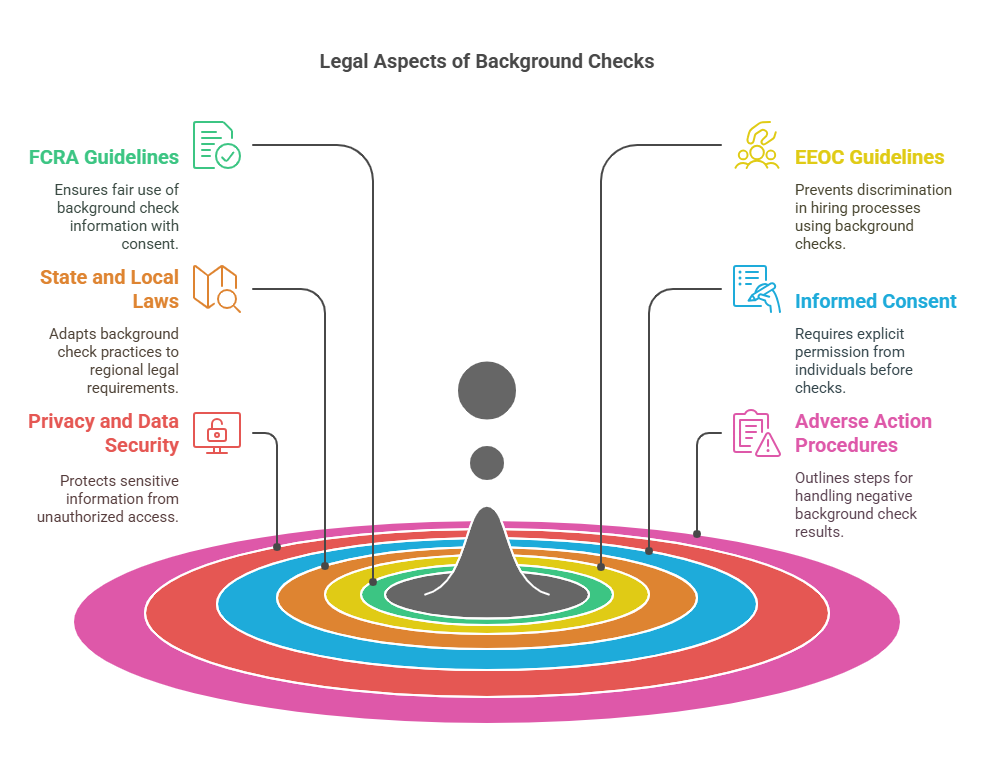How to Navigate Free Trial Background Check Services

Introduction to Free Trial Background Checks
In today’s world, background checks are an essential tool for businesses and individuals who want to verify the information and history of potential employees, tenants, or even business partners. A free trial background check is a service offered by certain companies that allows individuals or businesses to test out the background check process before committing to a paid version. In this article, we’ll explore what a free trial background check is, how it works, and the advantages and limitations of using these services.
What is a Free Trial Background Check?
A free trial background check is a service provided by background check companies that allows users to run a background check on an individual at no cost for a limited time or with certain restrictions. These trials are typically offered as a way for businesses, employers, or individuals to evaluate the service before purchasing a full background check package. During the trial period, users can access limited information about the person being checked, such as criminal records, employment history, or identity verification.
The idea behind a free trial background check is to give users a taste of the service’s features and capabilities, allowing them to determine if the platform is a good fit for their needs.
Why Conduct a Background Check?

Background checks are crucial for a variety of reasons. Here are some common situations where background checks are necessary:
1. Employment Screening:
Employers often conduct background checks as part of the hiring process to verify the qualifications and integrity of job candidates. A background check can reveal if a candidate has a criminal history, previous employment verification, or issues related to their financial history that may affect their ability to perform their job.
2. Tenant Screening:
Landlords and property managers typically use background checks to evaluate potential tenants. These checks can provide information about a tenant’s rental history, credit report, and criminal background to help ensure they are reliable and trustworthy.
3. Business Partnerships:
When forming new business relationships, companies may conduct background checks on potential partners, clients, or vendors to reduce the risk of fraud or unethical practices.
4. Personal Use:
Individuals may use background checks for personal reasons, such as verifying someone’s identity before engaging in business transactions, meeting new people, or even hiring a nanny.
What Can Be Included in a Background Check?
Background checks vary in scope depending on the purpose, but they generally include the following types of information:
- Criminal Records: Search for any past criminal history, including felony or misdemeanor convictions, arrest records, and court rulings.
- Credit Reports: Assess an individual’s financial history, including outstanding debts, bankruptcies, and credit scores. This is often part of tenant screening or positions that require financial trustworthiness.
- Employment History: Verify previous job roles, dates of employment, and the integrity of an individual’s work history.
- Educational Background: Confirm educational qualifications, including degrees, certifications, and the authenticity of the institutions listed on a resume.
- Social Security Number Verification: Ensure that the individual’s SSN matches their identity and helps identify any red flags related to identity theft.
Advantages and Disadvantages of Free Trial Background Checks
While free trial background checks offer many advantages, they also come with several limitations. To provide a clearer understanding, here’s a comparison of the pros and cons of using free trial background checks compared to paid services:
| Advantages | Disadvantages |
|---|---|
| Cost-Free: Free trial background checks offer a no-cost option for individuals or businesses to test the service. | Limited Information: Free trials often provide a partial report or limit the data available to users. |
| Easy to Use: Many free trial background check services are user-friendly and require little effort to get started. | Short Time Frame: The trial period is usually brief, so users may not have enough time to conduct a thorough check. |
| Test the Service: Users can evaluate the platform’s features, interface, and accuracy without committing to a full subscription. | Potential for Incomplete Results: Free trials may exclude some important information such as detailed criminal records or credit history. |
| Quick Access: Free trials may allow you to access background check results instantly or within a short time frame. | No Legal Compliance Guarantee: Free trials may not adhere to all legal requirements, such as the Fair Credit Reporting Act (FCRA). |
| Simple Setup: Signing up for a free trial is often quick and requires minimal information. | Limited Accuracy: The accuracy of the background check results may not be as thorough or reliable as the paid version. |
Limitations of Free Trial Background Checks

While free trial background checks offer convenience and an opportunity to test the service, they come with several limitations that users should be aware of before using them.
1. Limited Scope of Data:
Free trial background checks typically provide only basic information, such as criminal records or identity verification. However, they may not include more detailed data like credit reports, employment history, or educational background. If you need a comprehensive report for employment or tenant screening, the free trial may not be sufficient.
2. Accuracy Concerns:
Since free trials are designed to attract users to pay for a full service, the accuracy of the results may be compromised. Sometimes, the data provided may be outdated, incomplete, or inaccurate, especially when dealing with criminal or credit records.
3. Legal Compliance:
Free trials may not always comply with the Fair Credit Reporting Act (FCRA) or other legal requirements. This is particularly concerning for businesses conducting background checks for employment or tenant screening purposes. Failing to adhere to these regulations can lead to legal repercussions.
4. Limited Time Frame:
Free trials typically last for a limited period, often ranging from 3 to 7 days. This short time frame can make it difficult for users to perform a thorough check, especially if they are checking multiple individuals or have limited time to gather all the necessary information.
Common Providers Offering Free Trial Background Checks
Several companies offer free trial background check services. Below are some popular providers and the services they typically offer during the trial period:
1. GoodHire
- Free Trial Offerings: Basic criminal background check and identity verification.
- What’s Included: National criminal records, sex offender registries, and more.
- Limitations: Limited access to detailed employment or credit history.
2. Checkr
- Free Trial Offerings: A free sample background check report for individual users.
- What’s Included: Criminal history checks, employment verification, and drug screening.
- Limitations: Full access to advanced features like credit checks may require a paid subscription.
3. Instant Checkmate
- Free Trial Offerings: Access to basic public records.
- What’s Included: Criminal records, social media profiles, and address history.
- Limitations: A limited scope of public records; more advanced searches available only after subscription.
4. TruthFinder
- Free Trial Offerings: Basic criminal history reports and identity checks.
- What’s Included: Criminal records, background information, and social media data.
- Limitations: Limited access to employment or credit-related information.
How Free Trial Background Checks Work
Step 1: Signing Up for the Free Trial
The first step in using a free trial background check is to sign up for the service. Most providers make this process straightforward, requiring basic personal information such as name, email, and sometimes credit card details (depending on the provider’s terms). Some free trials are completely no-strings-attached, while others may require your credit card details but will not charge you unless you decide to continue with a paid subscription after the trial period ends.
Step 2: Inputting Information
After signing up, you will be asked to input the details of the individual for whom you want to conduct the background check. This can include:
- Full name
- Date of birth
- Address history
- Social Security Number (SSN)
It’s important to note that some services may require specific information like a Social Security number to access more detailed results, such as credit reports or past employment.
Step 3: Running the Background Check
Once you’ve entered the required details, you can run the background check. Depending on the provider, you may receive results instantly or within a short period (typically within hours). The background check may include a variety of records, such as:
- Criminal records
- Civil judgments
- Sex offender registry information
- Identity verification
While these results can be valuable, it’s crucial to remember that free trial background checks typically offer limited data. Full reports may require upgrading to a paid service, which would provide more comprehensive information like employment history or credit reports.
Step 4: Reviewing the Results
After the background check is complete, you’ll be able to review the results. The format and comprehensiveness of the report will vary depending on the service provider, but generally, you can expect a summary of the findings. Some services will allow you to download the full report, while others might offer a brief overview or a preview of the results.
Applications of Free Trial Background Checks
While the free trial offers limited information, it can still be useful in various real-world scenarios. Here are some common use cases for free trial background checks:
1. Pre-Employment Screening
One of the most common uses for background checks is in the hiring process. Employers often conduct background checks on candidates to ensure they are trustworthy, qualified, and free of criminal records that could affect their ability to perform their job.
A free trial background check can help employers quickly verify basic criminal records or identity verification. However, since these trials often do not provide full employment history or credit checks, they are best used as a preliminary step before deciding to conduct a more thorough investigation.
Example:
An employer may use a free trial background check to ensure that a candidate has no criminal history, particularly if the job involves handling sensitive information or working in a safety-sensitive position. However, if they need to verify past employment or check a candidate’s credit history, they will need to upgrade to a full background check.
2. Tenant Screening
Landlords often use background checks to assess whether prospective tenants are responsible and trustworthy. While free trials may not provide a full view of an applicant’s rental history, they can still offer valuable insights into an applicant’s criminal background or identity verification.
Example:
A landlord can use a free trial background check to verify that a prospective tenant has no criminal history, especially concerning violent crimes or drug offenses. However, if the landlord needs more detailed information, like past rental references or credit scores, they would need to opt for a paid service.
3. Business Partnerships and Vendors
Before entering into business relationships, companies may want to verify the integrity of potential partners or vendors. Free trial background checks can be used to check criminal records, lawsuits, or other public records that might suggest potential issues.
Example:
A company may perform a free trial background check on a potential vendor to confirm they are not involved in any criminal activity or lawsuits. This helps the business mitigate risks and ensure the vendor is reliable.
4. Personal Use
Individuals may use free trial background checks for personal reasons, such as checking the background of someone they are considering for a business deal, a babysitter, or even someone they meet online. The free trial offers an affordable way to run a basic check.
Example:
An individual may use a free trial to run a background check on a potential babysitter or caregiver to ensure they have no criminal history that could pose a risk to their family. However, the free trial may not provide the detailed work history or references they may want to see.
Risks and Limitations of Using Free Trial Background Checks
While free trials are a great way to test the service, there are some risks and limitations associated with relying on them. Understanding these limitations can help businesses and individuals make informed decisions about whether a free trial background check is sufficient or if a paid service is necessary.
1. Incomplete Information
Free trials often provide only basic information and may not offer the complete picture of an individual’s background. For instance, a free trial may provide criminal records but not include employment history, education verification, or credit checks, which could be vital depending on the purpose of the background check.
2. Accuracy Concerns
Since free trial background checks are often intended to entice users into paying for the full version, the data provided may not be as comprehensive or accurate as the full background check. There’s a possibility that some data may be outdated, incomplete, or incorrectly matched.
3. Legal and Compliance Risks
For businesses conducting background checks, it’s essential to ensure that the process complies with all legal regulations, including the Fair Credit Reporting Act (FCRA). Free trials might not guarantee full compliance, especially if you use them for employment purposes. Businesses must obtain informed consent from the individual being checked, and failure to comply with regulations can lead to legal issues.
4. Limited Scope for Ongoing Use
While free trial checks are helpful for testing a service, they are often limited in scope and duration. Businesses that require frequent or more detailed background checks may find that a free trial does not meet their long-term needs. Upgrading to a paid plan may be necessary to access more comprehensive data and maintain compliance with legal requirements.
Precise Hire and Background Check Services
Precise Hire is a trusted provider of background check services that ensures businesses remain compliant with all legal standards, even when using free trial options. Their services are designed to help businesses screen employees efficiently and accurately, with a strong emphasis on legal compliance.
Precise Hire offers a variety of background check services, including criminal records, credit reports, and employment verification. They ensure that businesses follow FCRA regulations and other legal requirements when using background checks for employment or tenant screening.
For businesses considering using a free trial background check, Precise Hire ensures that they have access to reliable, compliant, and comprehensive checks, helping to avoid any potential legal risks or gaps in information.
Best Practices for Using Free Trial Background Checks

To make the most of a free trial background check, businesses and individuals should follow these best practices:
- Review Trial Terms: Carefully read the terms and conditions of the free trial, including the data provided and the length of the trial period.
- Understand Limitations: Know what data is available during the trial, and understand that more comprehensive information may require a paid service.
- Use for Initial Screening: Consider using the free trial for preliminary checks to filter out obvious red flags, then use a paid service for more detailed and accurate results.
- Ensure Legal Compliance: Make sure that all background checks comply with legal standards, such as obtaining consent from individuals being checked and following all FCRA guidelines.
Legal Aspects of Free Trial Background Checks

1. Legal Compliance and Regulations
When conducting a background check, whether using a free trial or a paid service, it is important for businesses to ensure that they follow all legal regulations governing the use of background check information. The primary laws that govern background checks in the United States include:
- Fair Credit Reporting Act (FCRA): The FCRA sets guidelines for obtaining and using background check information. Employers must obtain written consent from the individual before conducting a background check. If an adverse action (such as not hiring or terminating employment) is taken based on the results of the background check, the employer must notify the individual.
- Equal Employment Opportunity Commission (EEOC) Guidelines: The EEOC has guidelines that ensure employers do not discriminate against candidates based on race, national origin, or other protected characteristics when using background checks. Employers must be careful not to use background checks in a way that disproportionately impacts certain groups.
- State and Local Laws: In addition to federal regulations, businesses must also be aware of state and local laws that may regulate the use of background checks. Some states have stricter laws regarding the types of records that can be considered, the timing of the check, or the reporting process.
Even if you are using a free trial background check service, businesses are still responsible for ensuring that they follow these compliance requirements. Some free trials may provide incomplete or inaccurate data, which can lead to compliance issues or legal risks. Therefore, it’s critical to ensure that the trial services you use comply with legal standards.
2. Informed Consent
One of the key legal considerations when using a background check is obtaining informed consent from the individual being checked. In the context of employment or tenant screening, individuals must be notified that a background check will be conducted and give explicit consent before any checks are run.
If using a free trial service, businesses must verify that the service ensures compliance with consent procedures. Even if the service is free, it is vital that it follows the FCRA guidelines regarding consent and notification.
Failure to obtain proper consent can expose a business to lawsuits, fines, and reputational damage. For example, if an applicant finds that their background check was conducted without their consent, they may be able to pursue a legal claim.
3. Privacy and Data Security
Another critical legal issue is the privacy and security of the data being collected during background checks. Whether using a free trial or a paid service, background check providers must ensure that sensitive information is handled with care.
Background check services should adhere to data protection laws and ensure that the data is not shared or accessed by unauthorized individuals. Businesses conducting background checks should verify that the provider complies with privacy laws and implements appropriate safeguards to protect personal information.
Failure to adequately protect personal data can result in serious legal consequences, including potential lawsuits under data breach laws or privacy regulations.
4. The Importance of Adverse Action Procedures
If a background check reveals negative results that lead to a decision not to hire or terminate an employee, businesses must follow the adverse action procedures outlined by the FCRA. This involves notifying the individual of the decision and providing them with an opportunity to dispute or explain the findings. The steps for adverse action include:
- Pre-Adverse Action Notification: Inform the individual of the background check results before taking any action (such as hiring or firing).
- Adverse Action Notification: If the decision is finalized, notify the individual in writing and provide a copy of the report.
- Right to Dispute: The individual must be informed of their right to dispute any inaccuracies in the report.
Businesses using a free trial background check service should ensure that they are prepared to handle adverse actions appropriately, following all legal procedures and maintaining transparency throughout the process.
FAQs About Free Trial Background Checks
Here are some frequently asked questions regarding free trial background checks:
Are Free Trial Background Checks Accurate and Reliable?
Free trial background checks may not always be comprehensive or fully accurate, as they typically offer limited data. While they can provide basic information like criminal records or identity verification, they often lack detailed employment histories, credit checks, or education verification. For more reliable and complete results, businesses may need to upgrade to a paid plan.
What Information Can I Expect from a Free Trial Background Check?
The information provided during a free trial background check varies depending on the service. Typically, you can expect criminal records, identity verification, and possible sex offender registry checks. However, more in-depth data, such as credit reports, employment history, or education records, may not be included.
How Long Do Free Trial Background Checks Last?
The duration of a free trial background check varies depending on the provider. Some free trials last for a limited period (e.g., 7 to 30 days), while others may provide limited access to background check results for a one-time inquiry. It’s important to read the provider’s terms to understand how long the trial lasts and what it includes.
Can I Use the Results of a Free Trial Background Check for Employment Purposes?
The results of a free trial background check may not always be suitable for employment purposes, especially if the trial does not provide comprehensive or accurate data. For employment screening, businesses should ensure that they use a background check service that complies with all FCRA guidelines and provides a full report. If the trial provides sufficient data, businesses can use it for preliminary screening but may need to use a paid service for full verification.
What Are the Limitations of a Free Trial Background Check?
The limitations of a free trial background check include:
- Limited data: Free trials may not provide a full scope of information (e.g., criminal records, credit reports, employment history).
- Inaccurate or outdated information: The data provided may be incomplete or incorrect.
- Short-term access: Free trials are typically limited to a short time or a single check.
- Compliance concerns: Free trials may not fully comply with legal regulations, so businesses must ensure they are following appropriate procedures.
Are Free Trial Background Checks Accurate and Reliable?
Free trial background checks may not always be comprehensive or fully accurate, as they typically offer limited data. While they can provide basic information like criminal records or identity verification, they often lack detailed employment histories, credit checks, or education verification. For more reliable and complete results, businesses may need to upgrade to a paid plan.
What Information Can I Expect from a Free Trial Background Check?
The information provided during a free trial background check varies depending on the service. Typically, you can expect criminal records, identity verification, and possible sex offender registry checks. However, more in-depth data, such as credit reports, employment history, or education records, may not be included.
How Long Do Free Trial Background Checks Last?
The duration of a free trial background check varies depending on the provider. Some free trials last for a limited period (e.g., 7 to 30 days), while others may provide limited access to background check results for a one-time inquiry. It’s important to read the provider’s terms to understand how long the trial lasts and what it includes.
Can I Use the Results of a Free Trial Background Check for Employment Purposes?
The results of a free trial background check may not always be suitable for employment purposes, especially if the trial does not provide comprehensive or accurate data. For employment screening, businesses should ensure that they use a background check service that complies with all FCRA guidelines and provides a full report. If the trial provides sufficient data, businesses can use it for preliminary screening but may need to use a paid service for full verification.
What Are the Limitations of a Free Trial Background Check?
The limitations of a free trial background check include:
- Limited data: Free trials may not provide a full scope of information (e.g., criminal records, credit reports, employment history).
- Inaccurate or outdated information: The data provided may be incomplete or incorrect.
- Short-term access: Free trials are typically limited to a short time or a single check.
- Compliance concerns: Free trials may not fully comply with legal regulations, so businesses must ensure they are following appropriate procedures.
Conclusion
Free trial background checks provide businesses and individuals with an affordable and low-risk way to evaluate a background check service. However, these services come with limitations, such as incomplete data and potential accuracy issues. It’s essential for businesses to understand the legal compliance requirements when using these services and ensure that they are properly managing informed consent, privacy, and adverse action procedures.
While free trials can be useful for preliminary screening, businesses should consider upgrading to paid services for more comprehensive and reliable background checks that fully comply with legal standards. Services like Precise Hire offer comprehensive background checks with a focus on compliance, ensuring that businesses are conducting background checks in a legal and ethical manner.
By following the best practices outlined in this article, businesses can make informed decisions about using free trial background checks, mitigate legal risks, and ensure the safety and reliability of their hires or tenants.
